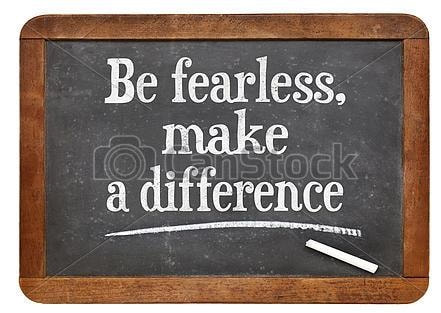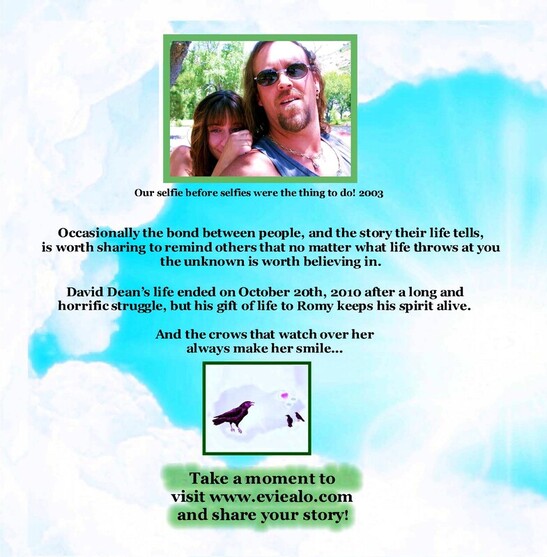The Important Questions...

Because I know I am not alone in this plight we call life with chronic illness, I thought it important to include others who have something to share. So, I came up with questions which I thought would help society understand what it is like to live this life.
Below are these questions, and I welcome anyone who wishes to share their answers.
Just email me your first name (you don't have to use your real name if it makes you uncomfortable), and your state and I will add your important thoughts with the world. Together we can educate and change the hearts and minds of society!
____________________________________
Below are these questions, and I welcome anyone who wishes to share their answers.
Just email me your first name (you don't have to use your real name if it makes you uncomfortable), and your state and I will add your important thoughts with the world. Together we can educate and change the hearts and minds of society!
____________________________________
- What is your illness(es) or condition(s)? Do you have a good support system, and if so, how have they helped? If not, what would help you?
- What would you like society to know about living with any kind of chronic physical illness when you still have to lead a “normal” life? (Go to work, pay bills, take care of children, etc.) What does it take to be one of the “silent sick?”
- Do you feel that your illness, and the life you have been forced to live as a result, has made you a better person? If so, in what way? If not, why?
- What changes would you like to see in regards to the medical field and how they treat people with chronic illnesses? What do you need them to know?
- What would you like to see done in regards to the government and their regulations concerning healthcare? What do you need them to know?
- What advice would you offer to young people with all kinds of physical illnesses about living their life
- Who is your greatest role model and why?
- What is your greatest regret in life and why?
- What are you most thankful for and why?
- Why do you want to share your story?
Ann in Indiana
* What is your illness(es) or condition(s)? Do you have a good support system, and if so, how have they helped? If not, what would help you?
I have IgA nepropathy, which is an autoimmune disease which attacks the kidneys. I was on dialysis for 27 months and received a kidney transplant in 2013. I have a good support system from a social and emotional standpoint. My friends and family have been very sympathetic with the emotional rollercoaster of dealing with a chronic illness.
However, the support system from a financial standpoint has been lacking. I am the primary breadwinner in my family. There were times that I had to sacrifice from a health and emotional standpoint in order to make sure that I could continue to keep my full-time job with full-time pay and benefits. Without an outside source of financial support, I could not focus 100% on my personal health and wellness so I constantly felt like I had to keep multiple plates spinning with very little tangible assistance.
*What would you like society to know about living with any kind of chronic physical illness when you still have to lead a “normal” life? (Go to work, pay bills, take care of children, etc.) What does it take to be one of the “silent sick?
No one is going to cut you any slack. Just because you have a chronic illness doesn’t mean that the mailman doesn’t deliver your bills in the daily mail. Your employer still requires that you maintain a level of output at your job. Your family still wants you to participate in their activities. Your home still requires a level of maintenance and cleanliness. Without a support system in these areas, every day is a constant battle between competing priorities. It’s the same as everyone else, but with a chronic illness, you are doing these things like a turtle trying to run through peanut butter.
*Do you feel that your illness, and the life you have been forced to live as a result, has made you a better person? If so, in what way? If not, why?
Yes and no. I am a better person because I tolerate less BS. I have to stand up for myself because no one else will. I’ve learned how to address confrontational situations without shrinking and how to advocate in myself in any situation.
I am also NOT a better person because I tolerate less BS. I have realized that life is too short to put up with other people’s garbage. I am quicker to write someone off and less tolerant of the foibles of others.
The medical field needs to understand that they need to work to streamline process wherever possible. Friction points are tolerable when you have rare dealings with the medical field, but when you deal with them day in and day out, the friction points become the stuff of nightmares.
The medical field also needs to embrace technology even more and work together more seamlessly. Too many times, people fall apart during care transitions or when there are multiple doctors involved. Maybe usage of more medical navigators or case managers? But not case managers from an insurance perspective, whose goal is to minimize the use of medical services. Real case managers who can make sure that the patient is being treated holistically and one doctor is not undoing the work of another.
Instead of gutting ACA, the government needs to implement single payer. Without single payer, healthcare costs will continue to increase and the increases will not actually help the health of the average patient, they will just go to insurance companies and all of the infrastructure health care providers need to deal with the insurance companies. Single payer would remove all of these layers and would let the health care dollars go towards actually treating patients.
Also, government needs to identify drugs that have single-source generics and fast track alternatives. Many immunosuppressives have only one generic source approved which causes costs to be outrageous. We need competition in the generic drug industry to bring costs down.
I have IgA nepropathy, which is an autoimmune disease which attacks the kidneys. I was on dialysis for 27 months and received a kidney transplant in 2013. I have a good support system from a social and emotional standpoint. My friends and family have been very sympathetic with the emotional rollercoaster of dealing with a chronic illness.
However, the support system from a financial standpoint has been lacking. I am the primary breadwinner in my family. There were times that I had to sacrifice from a health and emotional standpoint in order to make sure that I could continue to keep my full-time job with full-time pay and benefits. Without an outside source of financial support, I could not focus 100% on my personal health and wellness so I constantly felt like I had to keep multiple plates spinning with very little tangible assistance.
*What would you like society to know about living with any kind of chronic physical illness when you still have to lead a “normal” life? (Go to work, pay bills, take care of children, etc.) What does it take to be one of the “silent sick?
No one is going to cut you any slack. Just because you have a chronic illness doesn’t mean that the mailman doesn’t deliver your bills in the daily mail. Your employer still requires that you maintain a level of output at your job. Your family still wants you to participate in their activities. Your home still requires a level of maintenance and cleanliness. Without a support system in these areas, every day is a constant battle between competing priorities. It’s the same as everyone else, but with a chronic illness, you are doing these things like a turtle trying to run through peanut butter.
*Do you feel that your illness, and the life you have been forced to live as a result, has made you a better person? If so, in what way? If not, why?
Yes and no. I am a better person because I tolerate less BS. I have to stand up for myself because no one else will. I’ve learned how to address confrontational situations without shrinking and how to advocate in myself in any situation.
I am also NOT a better person because I tolerate less BS. I have realized that life is too short to put up with other people’s garbage. I am quicker to write someone off and less tolerant of the foibles of others.
- What changes would you like to see in regards to the medical field and how they treat people with chronic illnesses? What do you need them to know?
The medical field needs to understand that they need to work to streamline process wherever possible. Friction points are tolerable when you have rare dealings with the medical field, but when you deal with them day in and day out, the friction points become the stuff of nightmares.
The medical field also needs to embrace technology even more and work together more seamlessly. Too many times, people fall apart during care transitions or when there are multiple doctors involved. Maybe usage of more medical navigators or case managers? But not case managers from an insurance perspective, whose goal is to minimize the use of medical services. Real case managers who can make sure that the patient is being treated holistically and one doctor is not undoing the work of another.
- What would you like to see done in regards to the government and their regulations concerning healthcare? What do you need them to know?
Instead of gutting ACA, the government needs to implement single payer. Without single payer, healthcare costs will continue to increase and the increases will not actually help the health of the average patient, they will just go to insurance companies and all of the infrastructure health care providers need to deal with the insurance companies. Single payer would remove all of these layers and would let the health care dollars go towards actually treating patients.
Also, government needs to identify drugs that have single-source generics and fast track alternatives. Many immunosuppressives have only one generic source approved which causes costs to be outrageous. We need competition in the generic drug industry to bring costs down.
- What advice would you offer to young people with all kinds of physical illnesses about living their life?
- Who is your greatest role model and why?
- What is your greatest regret in life and why?
- What are you most thankful for and why?
- Why did you decide to be part of this?
